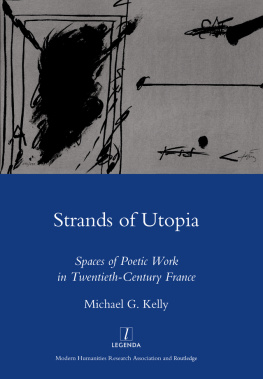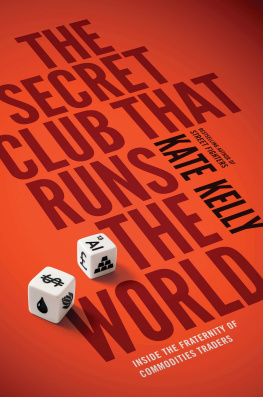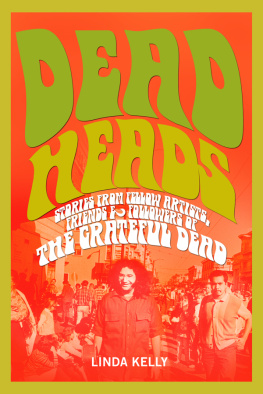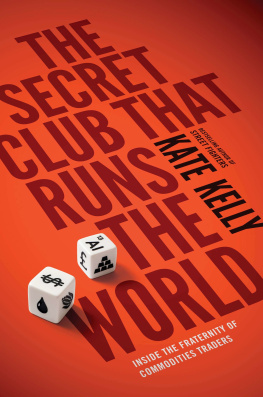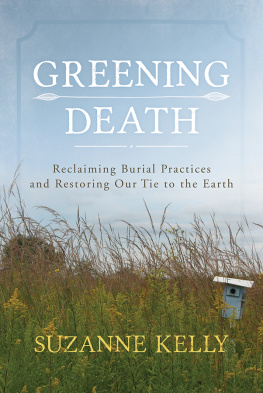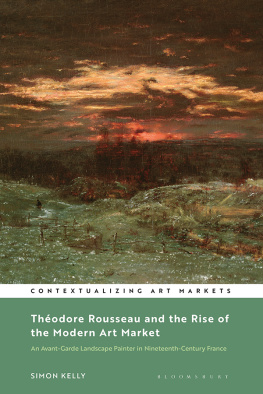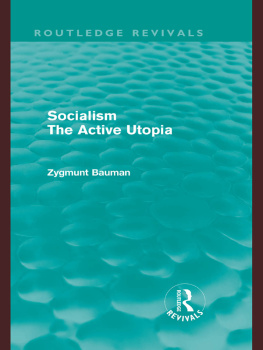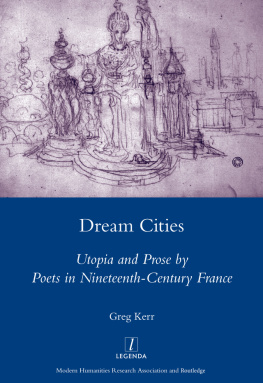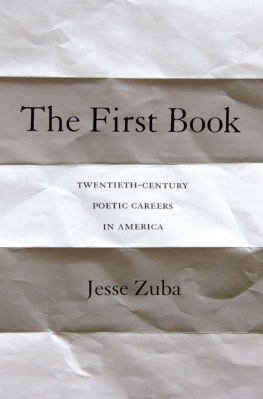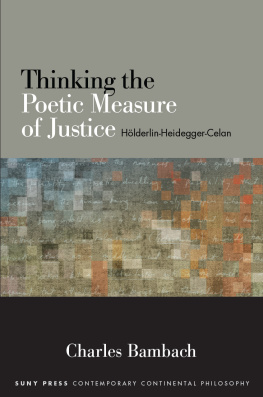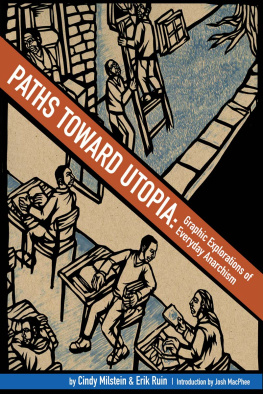Kelly - Strands of Utopia: Spaces of Poetic Work in Twentieth Century France
Here you can read online Kelly - Strands of Utopia: Spaces of Poetic Work in Twentieth Century France full text of the book (entire story) in english for free. Download pdf and epub, get meaning, cover and reviews about this ebook. publisher: Taylor & Francis (CAM), genre: Religion. Description of the work, (preface) as well as reviews are available. Best literature library LitArk.com created for fans of good reading and offers a wide selection of genres:
Romance novel
Science fiction
Adventure
Detective
Science
History
Home and family
Prose
Art
Politics
Computer
Non-fiction
Religion
Business
Children
Humor
Choose a favorite category and find really read worthwhile books. Enjoy immersion in the world of imagination, feel the emotions of the characters or learn something new for yourself, make an fascinating discovery.
Strands of Utopia: Spaces of Poetic Work in Twentieth Century France: summary, description and annotation
We offer to read an annotation, description, summary or preface (depends on what the author of the book "Strands of Utopia: Spaces of Poetic Work in Twentieth Century France" wrote himself). If you haven't found the necessary information about the book — write in the comments, we will try to find it.
Kelly: author's other books
Who wrote Strands of Utopia: Spaces of Poetic Work in Twentieth Century France? Find out the surname, the name of the author of the book and a list of all author's works by series.
Strands of Utopia: Spaces of Poetic Work in Twentieth Century France — read online for free the complete book (whole text) full work
Below is the text of the book, divided by pages. System saving the place of the last page read, allows you to conveniently read the book "Strands of Utopia: Spaces of Poetic Work in Twentieth Century France" online for free, without having to search again every time where you left off. Put a bookmark, and you can go to the page where you finished reading at any time.
Font size:
Interval:
Bookmark:

STRANDS OF UTOPIA
SPACES OF POETIC WORK IN TWENTIETH-CENTURY FRANCE

LEGENDA, founded in 1995 by the european Humanities Research Centre of the University of Oxford, is now a joint imprint of the Modern Humanities Research association and Routledge. Titles range from medieval texts to contemporary cinema and form a widely comparative view modern humanities, including works on Arabic, Catalan, English, French, German, Greek, Italian, Portuguese, Russian, Spanish, and Yiddish literature. An editorial Board of distinguished academic specialists works in collaboration with leading scholarly bodies such as the Society for French Studies and the Comparative literature association.

The Modern Humanities Research association (MHRA) encourages and promotes advanced study and research in the field of the modern humanities, especially modern European languages and literature, including English, and also cinema. It also aims to break down the barriers between scholars working in different disciplines and to maintain the unity of humanistic scholarship in the face of increasing specialization. The association fulfils this purpose primarily through the publication of journals, bibliographies, monographs and other aids to research.

Routledge is a global publisher of academic books, journals and online resources in the humanities and social sciences. Founded in 1836, it has published many of the greatest thinkers and scholars of the last hundred years, including Adorno, Einstein, Russell, Popper, Wittgenstein, Jung, Bohm, Hayek, McLuhan, Marcuse and Sartre. Today Routledge is one of the worlds leading academic publishers in the Humanities and Social Sciences. It publishes thousands of books and journals each year, serving scholars, instructors, and professional communities worldwide.
www.routledge.com
Chairman
Professor Martin Mclaughlin, Magdalen College, Oxford
Professor John Batchelor, University of Newcastle (English)
Professor Malcolm Cook, University of Exeter (French)
Professor Colin Davis, Royal Holloway University of London (Modern Literature, Film and Theory)
Professor Robin Fiddian, Wadham College, Oxford (Spanish)
Professor Paul Garner, University of Leeds (Spanish)
Professor Marian Hobson Jeanneret, Queen Mary University of London (French)
Professor Catriona Kelly New College, Oxford (Russian)
Professor Martin Maiden, Trinity College, Oxford (Linguistics)
Professor Peter Matthews, St Johns College, Cambridge (Linguistics)
Dr Stephen Parkinson, Linacre College, Oxford (Portuguese)
Professor Ritchie Robertson, St Johns College, Oxford (German)
Professor Lesley Sharpe, University of Exeter (German)
Professor David Shepherd, University of Sheffield (Russian)
Professor Alison Sinclair, Clare College, Cambridge (Spanish)
Professor David Treece, Kings College London (Portuguese)
Professor Diego Zancani, Balliol College, Oxford (Italian)
Managing Editor
Dr Graham Nelson
41 Wellington Square, Oxford OX1 2JF, UK
legenda@mhra.org.uk
www.legenda.mhra.org.uk
Spaces of Poetic Work in Twentieth-Century France
Michael G. Kelly
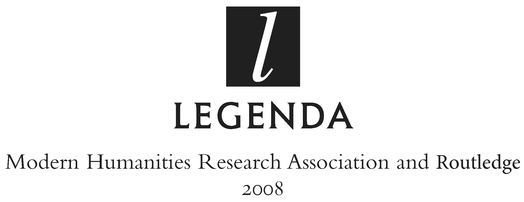
First published 2008
Published by the
Modern Humanities Research Association and Routledge
2 Park Square, Milton Park, Abingdon, Oxon OX14 4RN
711 Third Avenue, New York, NY 10017, USA
LEGENDA is an imprint of the Modern Humanities Research Association and Routledge
Routledge is an imprint of the Taylor & Francis Group, an informa business
Modern Humanities Research Association and Taylor & Francis 2008 The poems Vrit, Une voix, Le mot ronce, dis-tu? and Le pays du sommet des arbres by Yves Bonnefoy are Mercure de France and appear by kind permission
ISBN 9-781-905981-14-4 (hbk)
All rights reserved. No part of this publication may be reproduced, stored in a retrieval system, or transmitted in any form or by any means, electronic, mechanical, including photocopying, recordings, fax or otherwise, without the prior written permission of the copyright owner and the publisher.
Product or corporate names may be trademarks or registered trademarks, and are used only for identification and explanation without intent to infringe.
This study is an attempt come to terms with a significant cultural reality across a broad diachronic canvas. It postulates a thinkable, evolving continuity of French poetic practice throughout the twentieth century as one cognizant of its lateness, attentive to the world it must inhabit, but abidingly committed to the principle and significance of its own difference. In structuring and pursuing that attempt it draws heavily upon the multidimensional theoretical resource of utopia. Utopia designates a complex tension within the creative endeavour (here that poetic of work ) between the energies of realization, construction, imposition and those of de-realization, negation, escape. It inaugurates three kinds of space social, physical and textual. The organizational principle of the study is therefore that of the division of space into these three orders which read together form a fourth, that of a fully social practice (lefebvre).
The general parts into which the study is divided correspond to these three distinct strands of utopia'. Arguing in the first two chapters of each part for the pertinence of the space in question to the problem of the poetic , the study develops its argument in the three subsequent chapters of each part with reference three major oeuvres by writers generally classified as poets: Victor Segalen (18781919), Ren Daumal (19081944), and Yves Bonnefoy (b. 1923). The character of poetry as in continuous renewal and re-beginning is argued to exemplify a utopian dynamic a vectoral addition to the conventionally static, figure-bound utopia variably traceable across the century. Just as the utopian complex illuminates the poetic, so too does the poetic detour have important implications for attempts to reflect upon the spirit of utopia (Bloch). The study argues in conclusion for the richness of an idea of utopia as a form of creative hope, a leavening energy within a context of disenchantment, and attempts to relate a durable modern practice of poetic writing to this disposition as that practice evolves within a new century.
Faced with the fundamental difficulty of constructing an affirmative discourse in the face of texts that challenge the very workings of affirmation, both in the writing subject in question and in their subsequent reception, the following discussion does not ally itself with a particular critical discourse. Rather, through the theoretical resource of utopia and the spatial divisions to which it gives rise, it attempts to do justice to the idea that the poetic text is validly open to many approaches (phenomenological, psychoanalytic, sociological, onto-philosophical among others). These, rather than disqualifying one another, potentially constitute sources of both mutual enrichment and qualification. None ultimately abolishes the utopian aspect of the poetic. The resistance of poetic work to appropriative discourses requires the reader of poetry to assume responsibility for all such discursive projections, and hence for his or her own limitations in the face of an ultimately unrecuperable utterance.
Font size:
Interval:
Bookmark:
Similar books «Strands of Utopia: Spaces of Poetic Work in Twentieth Century France»
Look at similar books to Strands of Utopia: Spaces of Poetic Work in Twentieth Century France. We have selected literature similar in name and meaning in the hope of providing readers with more options to find new, interesting, not yet read works.
Discussion, reviews of the book Strands of Utopia: Spaces of Poetic Work in Twentieth Century France and just readers' own opinions. Leave your comments, write what you think about the work, its meaning or the main characters. Specify what exactly you liked and what you didn't like, and why you think so.

